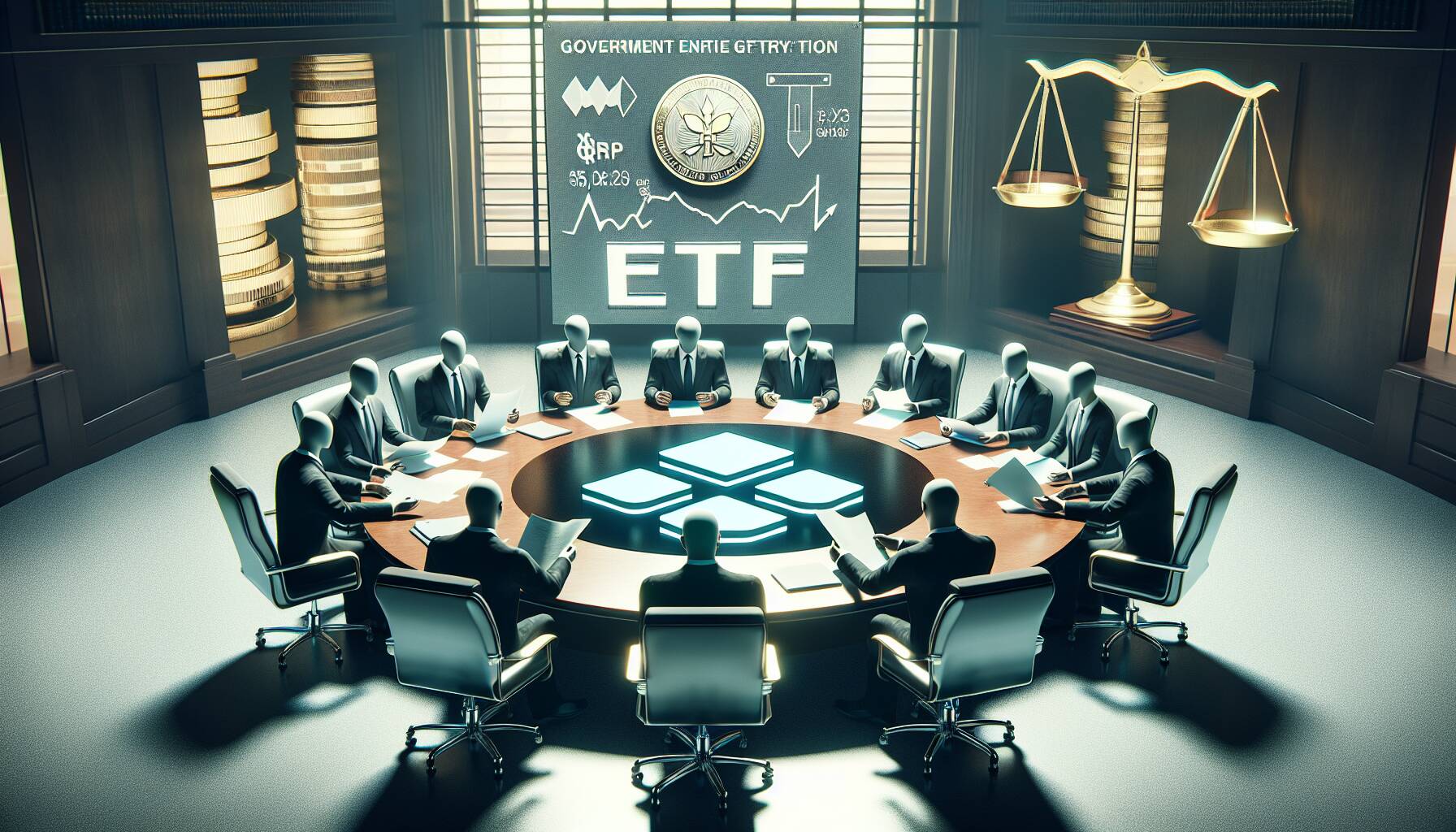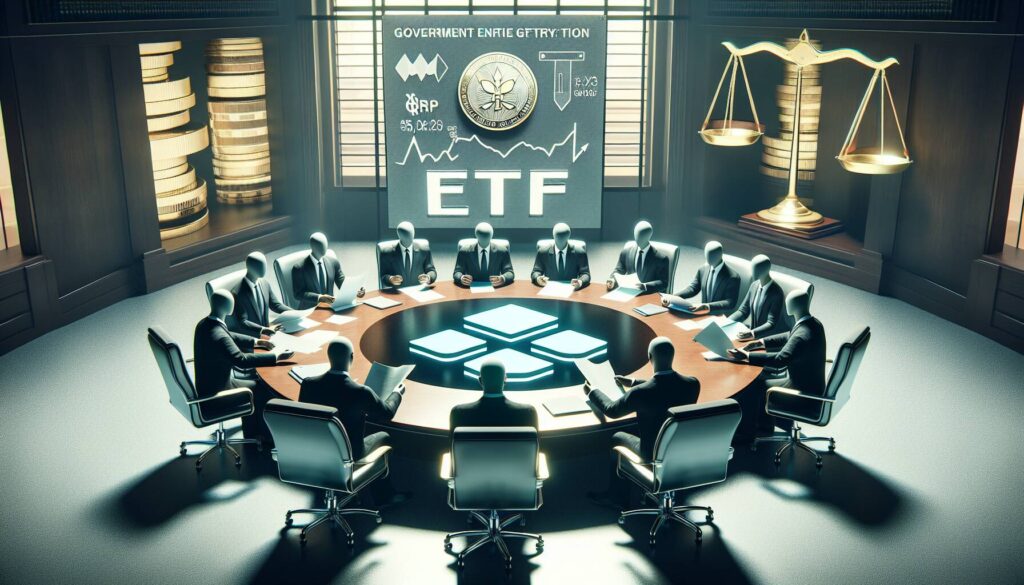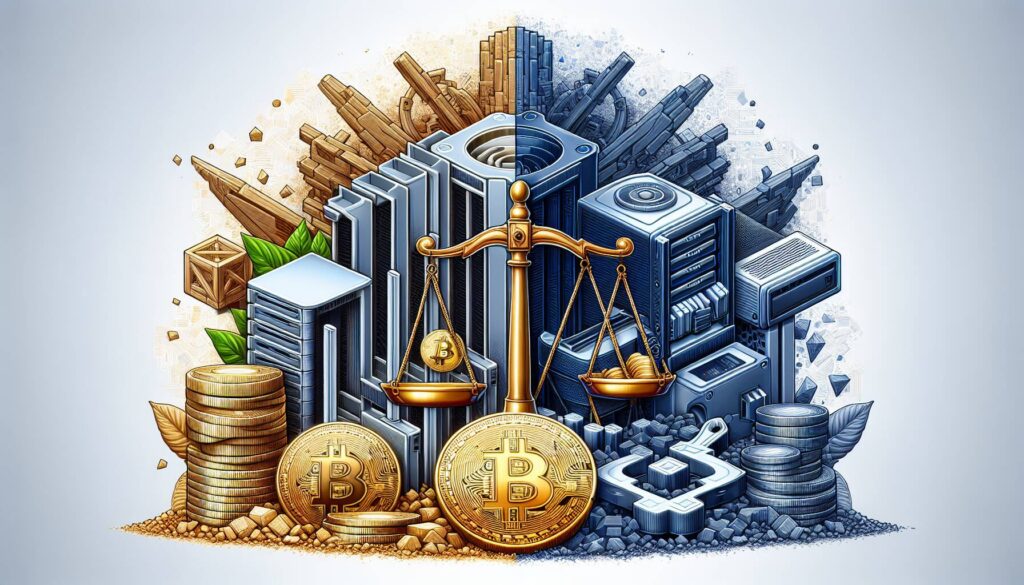The cryptocurrency landscape is buzzing with anticipation as the Securities and Exchange Commission (SEC) takes a significant step regarding a potential exchange-traded fund (ETF) tied to XRP, a popular digital asset. For the first time, the SEC has responded to a filing concerning XRP, submitted by the New York Stock Exchange (NYSE) in partnership with asset manager Grayscale. This acknowledgment opens the door for a crucial decision from the SEC, which now has up to 240 days to deliberate on the ETF proposal.
The implications of this move are profound, particularly given the SEC’s ongoing legal battle with Ripple Labs, the company behind XRP. Back in December 2020, the SEC filed a lawsuit against Ripple, claiming that XRP had been sold as an unregistered security. However, a major development came in August 2023 when a federal judge ruled that XRP was not a security when sold on secondary markets, a significant victory for Ripple. Yet, the SEC responded by appealing this decision, aiming to classify XRP under the Howey Test, a landmark ruling used to determine what constitutes a security.
“They could have easily rejected this filing,” noted Nate Geraci, President of the ETF Store, highlighting the SEC’s choice to engage with the application rather than dismiss it outright.
This move marks a noteworthy moment, not only for Ripple but also for the broader cryptocurrency market, which has seen varying responses from the SEC regarding other crypto-related ETF applications. Previous acknowledgements included requests for funds based on assets such as Solana (SOL), Litecoin (LTC), and even Dogecoin (DOGE). As the market watches closely, Bloomberg ETF analysts have indicated a 65% probability that the XRP ETF could receive approval by the end of 2025, placing it alongside predictions for other crypto assets. This adds yet another layer to the unfolding narrative surrounding cryptocurrency regulation in the U.S.

SEC’s Decision on XRP ETF: Key Points
The recent developments regarding the Securities and Exchange Commission (SEC) and its stance on the proposed XRP exchange-traded fund (ETF) could have significant implications for investors and the broader cryptocurrency market.
- SEC’s Deadline for Decision:
- The SEC has acknowledged a 19b-4 filing by the NYSE and Grayscale for an XRP ETF.
- This acknowledgment grants the SEC up to 240 days to deliberate and come to a decision.
- Ripple Lawsuit Context:
- Ripple, the issuer of XRP, is currently involved in an ongoing lawsuit with the SEC since December 2020.
- A federal judge ruled in August 2023 that XRP is not a security when sold in secondary markets, partially favoring Ripple.
- Market Predictions:
- Bloomberg ETF analysts have estimated a 65% chance for XRP ETF approval by the end of 2025.
- Similar applications for LTC, DOGE, and SOL show differing probabilities of approval, with LTC at 90%, DOGE at 75%, and SOL also at 65%.
- Investor Sentiment:
- The acknowledgment of the XRP ETF filing by the SEC is seen as a significant development in the crypto market.
- Experts like Nate Geraci highlight the implications of the SEC’s actions, suggesting an “enormous message” regarding regulatory acceptance.
The pending decision on the XRP ETF not only impacts potential investors but also reflects broader regulatory trends in the cryptocurrency space.
SEC’s Decision on XRP ETF: A New Frontier or a Legal Minefield?
In a notable move for the cryptocurrency market, the Securities and Exchange Commission (SEC) is gearing up to make a decision on allowing an exchange-traded fund (ETF) that tracks XRP. This is particularly intriguing given the ongoing legal battle between the SEC and Ripple, the creator of XRP. The SEC has previously been cautious regarding crypto-focused ETFs, with other digital assets like Solana, Litecoin, and Dogecoin also awaiting the Commission’s verdict. The situation has turned competitive as analysts weigh in on the likelihood of approval, raising the stakes for investors and institutions alike.
Competitive Advantages: The SEC’s acknowledgment of the 19b-4 filing by the New York Stock Exchange and asset manager Grayscale is a potentially game-changing moment for XRP enthusiasts and investors. Unlike previous ETF applications, which have faced outright rejection or indefinite delays, this sign of engagement from the SEC could pave the way for a more stable investment option in the volatile crypto market. Moreover, this follows Ripple’s partial legal victory, positioning XRP positively in the eyes of regulators. Analysts predict a 65% chance for an XRP ETF approval by 2025, placing it neck-and-neck with Solana in terms of potential success.
Disadvantages: However, this situation is not without its hiccups. With the SEC’s ongoing appeal against Ripple’s legal decision, the uncertainty surrounding XRP’s regulatory status could deter traditional investors from jumping in. Investors may be hesitant, viewing the XRP ETF as a risky gamble compared to more established options like Litecoin or Dogecoin, which have higher predicted approval chances of 90% and 75%, respectively. This creates a challenging environment for institutions considering diversifying their portfolios into crypto, as they weigh the risks of an unpredictable regulatory landscape against potential rewards.
The current SEC developments could profoundly impact various stakeholders. Proponents of cryptocurrency might find new pathways to entry and diversification, especially retail investors seeking to gain exposure to XRP without directly purchasing the asset. However, for larger institutions and financial firms that prioritize stability and compliance, the ongoing ambiguity from the SEC may present significant challenges. Furthermore, any unfavorable outcomes for XRP could ripple across the industry, creating broader skepticism about future crypto ETF opportunities.

















